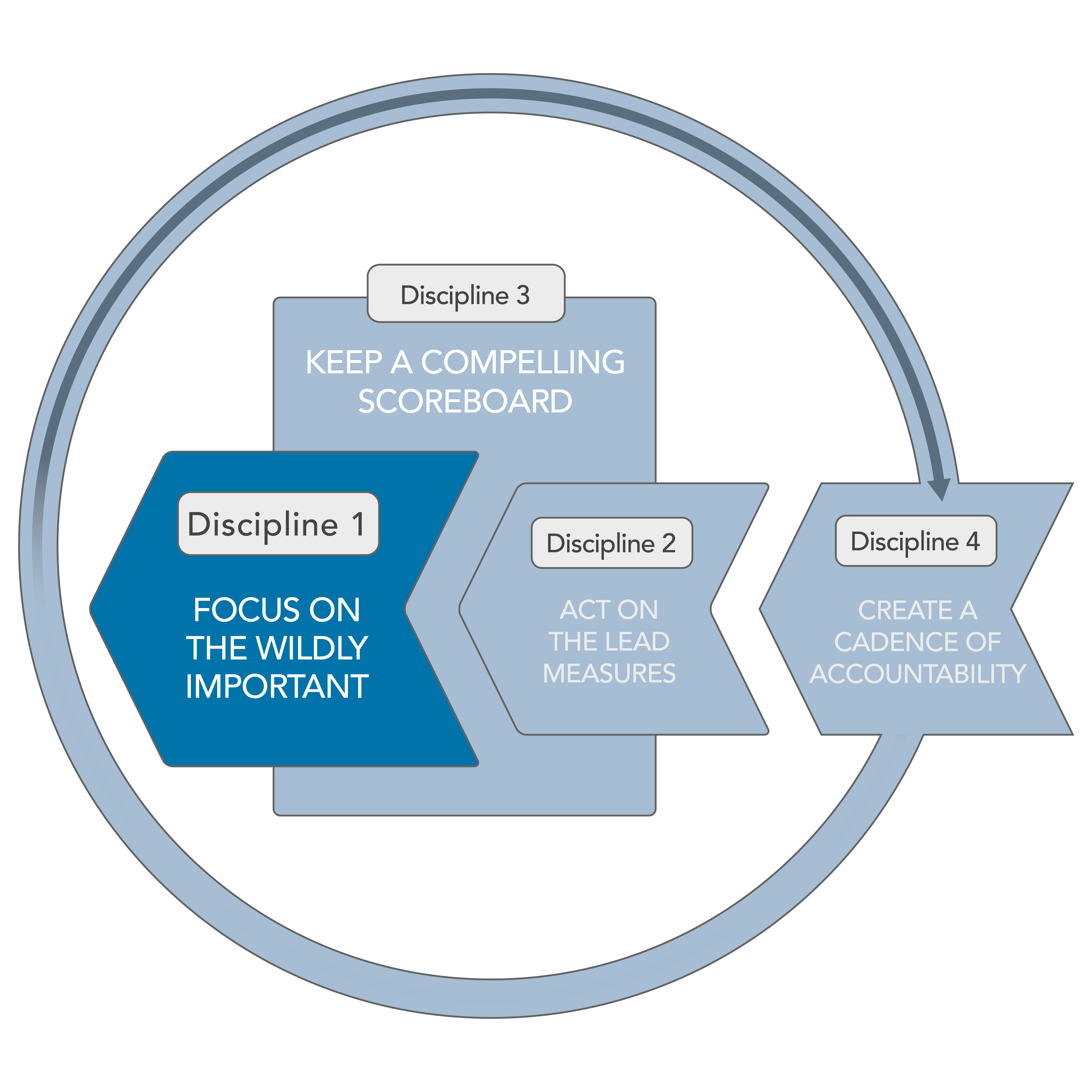Discipline 1: Focus on the Wildly Important

There will always be more good ideas than there is capacity to execute.
Our research has shown that only 15 percent of employees actually know their organization’s most important goals. Either there are no goals, or they have too many goals.
Focus on less to accomplish more. Start by selecting 1 Wildly Important Goal® (WIG®) instead of trying to work on a dozen goals all at once. We are not suggesting you ignore the work necessary to maintain your daily operation. We are suggesting you narrow your focus to work on what you want to significantly improve.
Most intelligent, ambitious people don’t want to do less, especially if it means saying no to good ideas. They are wired to do more, but there are always more good ideas than there is capacity to execute.
When you choose a WIG®, you identify the most important objective that won’t be achieved unless it gets special attention. In other words, your normal course of business won’t make it happen.
To define a WIG®, identify where you are now, where you want to be, and by when. Said differently, you define a starting line, a finish line, and a deadline. Psychologically, it is important to have a single measure of success. This is the discipline of focus, and it’s the first step in creating a winnable game.
Free Guide
Use this guide to bring laser focus and clarity to your goals.
Register for an Event
Join Chris McChesney, lead author of the bestselling book in the world on strategy execution for this 60-minute webcast.
The Wildly Important Goal®
Practising Discipline 1 means narrowing your focus to a few highly important goals so you can achieve them in the midst of the whirlwind of the day job.
Your chances of achieving 2 or 3 goals with excellence are high, but the more goals you try to juggle at once, the less likely you will be to reach them.


Focusing on the wildly important requires you to go against your basic wiring as a leader to do more, and instead, focus on less so that your team can achieve more.
Focus on the Wildly Important
Act on the Lead Measures
Learn More
Keep a Compelling Scoreboard
Learn More
Create a Cadence of Accountability
Learn More










